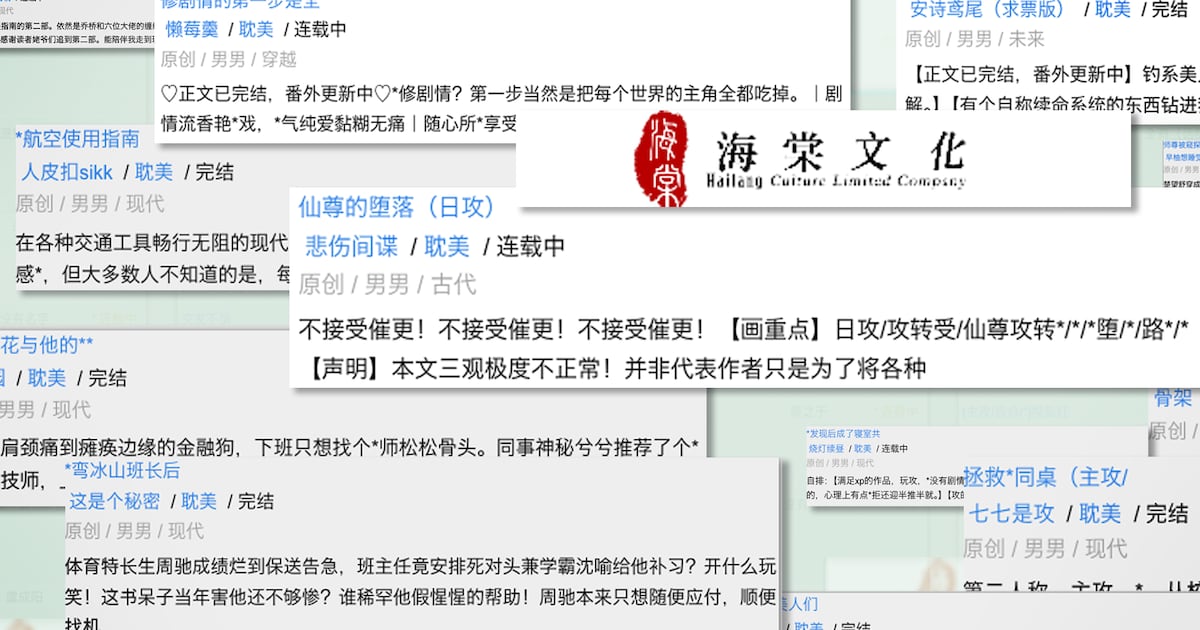Police in northwestern China are cracking down on writers of online erotic fiction across the country, including many college students, according to RFA sources and media reports, amid concern that officers are punishing people outside their jurisdiction.
Police in Lanzhou, the capital of Gansu province, have been summoning writers who don’t even live there. A report from Caixin media group said some have been referred to police for prosecution, and anecdotal evidence indicates writers are facing substantial fines.
A source who spoke to Radio Free Asia on condition of anonymity for safety reasons said the crackdown could involve 200-300 writers.
Their cases have also sparked a legal debate over the definition of “obscene materials” and renewed public discussion on the boundaries of creative freedom. Known as “Danmei,” the genre features romantic relationships between male characters. It originated in Japan and has become popular in China.
Amid tightened restrictions in China, many writers have turned to Haitang Culture, a Taiwanese-based adult fiction website established in 2015 to publish their work. The website on the democratic island doesn’t force censorship and allows explicit written content. Most readers are females.
Authorities in China have reacted. Last year, two China-based distributors affiliated with Haitang Culture were arrested for “assisting in information network criminal activities,” according to Shuiping Jiyuan, a news portal on the WeChat social media platform.
The recent police crackdown in Lanzhou followed similar moves in the eastern province of Anhui in June 2024, where authorities began arresting writers of online erotic fiction under the charge of “producing and distributing obscene materials for profit,” resulting in heavy fines and even prison sentences.
Police are seeking out writers even when they leave outside their jurisdiction - a practice that critics call “offshore fishing,” implying the motive of police is financial or political, rather than strictly legal.
“I don’t understand what they’re trying to do—are they pushing political correctness, or are they just desperate for money?” said Liu Yang, a veteran media professional in Lanzhou, told Radio Free Asia. “The police are short on funds, and now even arrests have become a way to make money.”



I don’t think saying state-funded media is untrustworthy as a reply to a comment saying state-funded media is untrustworthy is the gotcha you think it is.
It wasn’t supposed to be a gotcha. Especially to an ML